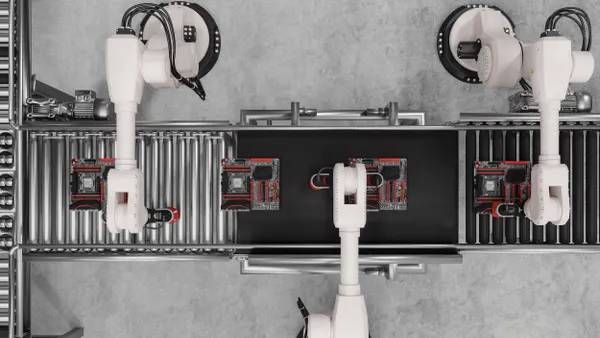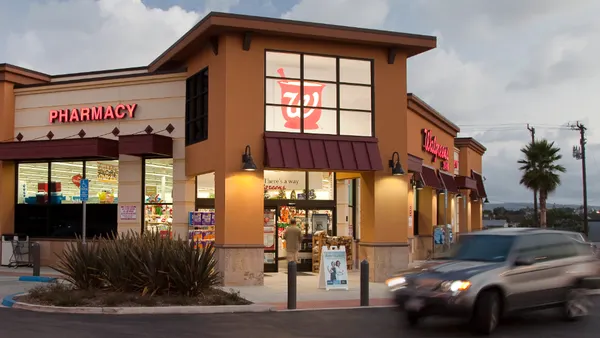Dive Brief:
- Rite Aid is closing distribution centers in Washington and Maryland as it toils away in yet another bankruptcy process, according to two May 7 Worker Adjustment and Retraining Notification filings.
- The facilities in Aberdeen, Maryland, and Des Moines, Washington, will both shutter June 4, with nearly 500 employees expected to be impacted.
- Last year, Rite Aid consolidated its distribution center footprint in California as it restructured operations as part of a bankruptcy process begun in 2023. The company did not immediately respond to a request for comment about its plans for its remaining supply chain facilities.
Dive Insight:
Earlier this month, Rite Aid filed for bankruptcy once again, less than a year after emerging from its previous restructuring. The company is now pursuing a sale as contentious supplier relationships, declining demand and a lack of capital pushed it to file once again.
“The company places a lot of blame on its vendors who did not relax their restrictive payment terms,” Sarah Foss, head of restructuring at Debtwire, said in an email to Retail Dive this month. “The strained vendor relations combined with the company being unable to obtain additional liquidity from its letter of credit facilities, lower consumer spending and increasing competition left the company with insufficient liquidity to operate its business and service its massive debt obligations.”
Rite Aid is not alone among drugstore chains struggling in an evolving economic environment. Walgreens, which was once considered a candidate to acquire Rite Aid, recently announced its sale to private equity firm Sycamore Partners. The announcement came months after Walgreens said it would close roughly 1,200 stores.
However, amid the turbulence, Walgreens in January announced it was reigniting efforts to service more of its stores with its roster of micro-fulfillment centers. The company had paused such plans in 2023 due to cost concerns. Since then, Walgreens has made “massive improvements” in operating and cost efficiency of the facilities, said CEO Tim Wentworth on a Q1 earnings call.
















